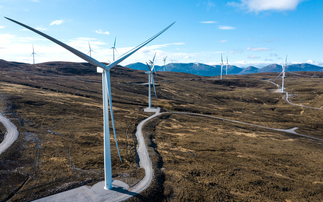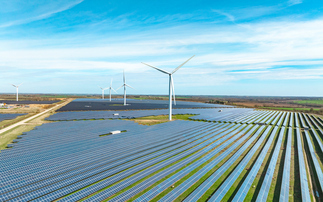World Energy Council business group says carbon pricing is essential to boosting green investments
Through its flagship work on the energy trilemma, the World Energy Council (WEC) has been working for the past four years to bring together energy business leaders, policymakers and investors to analyse how to drive the sort of investment decisions that would contribute to a more sustainable energy future. The sums required are huge - between $48tr and $53tr by 2040, according to the International Energy Agency (IEA).
Most of this investment will have to come from the private sector, who both need to reduce their own carbon emissions and to innovate in the way that energy is sourced, supplied and used to enable others to do so. Business is therefore critical to meeting the three goals of the energy trilemma (energy security, energy equity, and environmental sustainability). But while 84 per cent of global CEOs agree business should lead efforts to define and deliver new goals on sustainability, only a third say that business is doing enough in this respect.
The WEC community, encompassing companies and investors responsible for trillions of dollars, as well as policymakers worldwide, has told us they consider carbon pricing essential to driving progress towards a more sustainable future. In our recently published report on what needs to happen at the forthcoming climate conference in Paris (COP21) they call for a single emissions reduction target backed by complementary measures that impel action. Some among them favour the pricing certainty provided by carbon taxation, but others stress the advantages of emissions trading, with one commenting, "an ETS provides the private sector with the flexibility required to reduce emissions while stimulating technological innovation".
Of course, it can be challenging for companies to reduce their emissions, and some may find it impossible to eliminate their climate footprint entirely in the short term. But action is urgent, and voluntary carbon offsetting is one crucial way of providing additional investment for climate action. The Clean Development Mechanism (CDM) projects that offsetting can support are much needed to achieve greater sustainability in many sectors and developing countries. The fact that the CDM has directed more than $215bn into such projects, while we may struggle even to reach the goal from Copenhagen of $100bn per annum of climate finance for developing countries, speaks for itself - a goal, incidentally that many, myself included, regard as far from ambitious enough.
There is a legitimate debate over whether some offsetting schemes do drive additional mitigation effort, or whether they amount to greenwash. That is why it is important for offsetting to take place within a credible, certified scheme like the CDM. Then it can represent a valid and viable option for the carbon that some companies will find it difficult to eliminate with current technologies. Moreover the experience of offsetting can drive new attitudes to what it is possible to achieve.
Look at China, where the benefits of the CDM were a crucial factor in developing the commitment to constrain emissions through emissions trading schemes.
Nor is this just an issue for big businesses. To be truly carbon neutral, companies must address their supply chains. In the UK it is estimated that 80 per cent of a company's carbon footprint resides in its supply chain, which is likely made up of companies of a variety of different sizes. In fact SMEs constitute 99.9 per cent of the UK business sector.
It is encouraging that many businesses have shown leadership by adopting goals of moving towards climate neutrality. But offsetting remains a valuable complementary action for those who cannot yet do so. It also sends a very real message to governments across the globe that business will play its part in tackling this problem, provided the policymakers put in place an ambitious and practical framework: one that enables and incentivises business to act. Voluntary offsetting should be a part of that architecture, and the announcement from the UN on 'Climate Neutral Now' will, I hope, help prepare the ground for voluntary offsetting to be included in the agreements reached in Paris.
The core message from the WEC business community is unequivocal - we are ready for an ambitious climate agreement, and it is time for climate negotiators "to get something done".
Joan Macnaughton is chairwoman of the World Energy Trilemma of the World Energy Council







